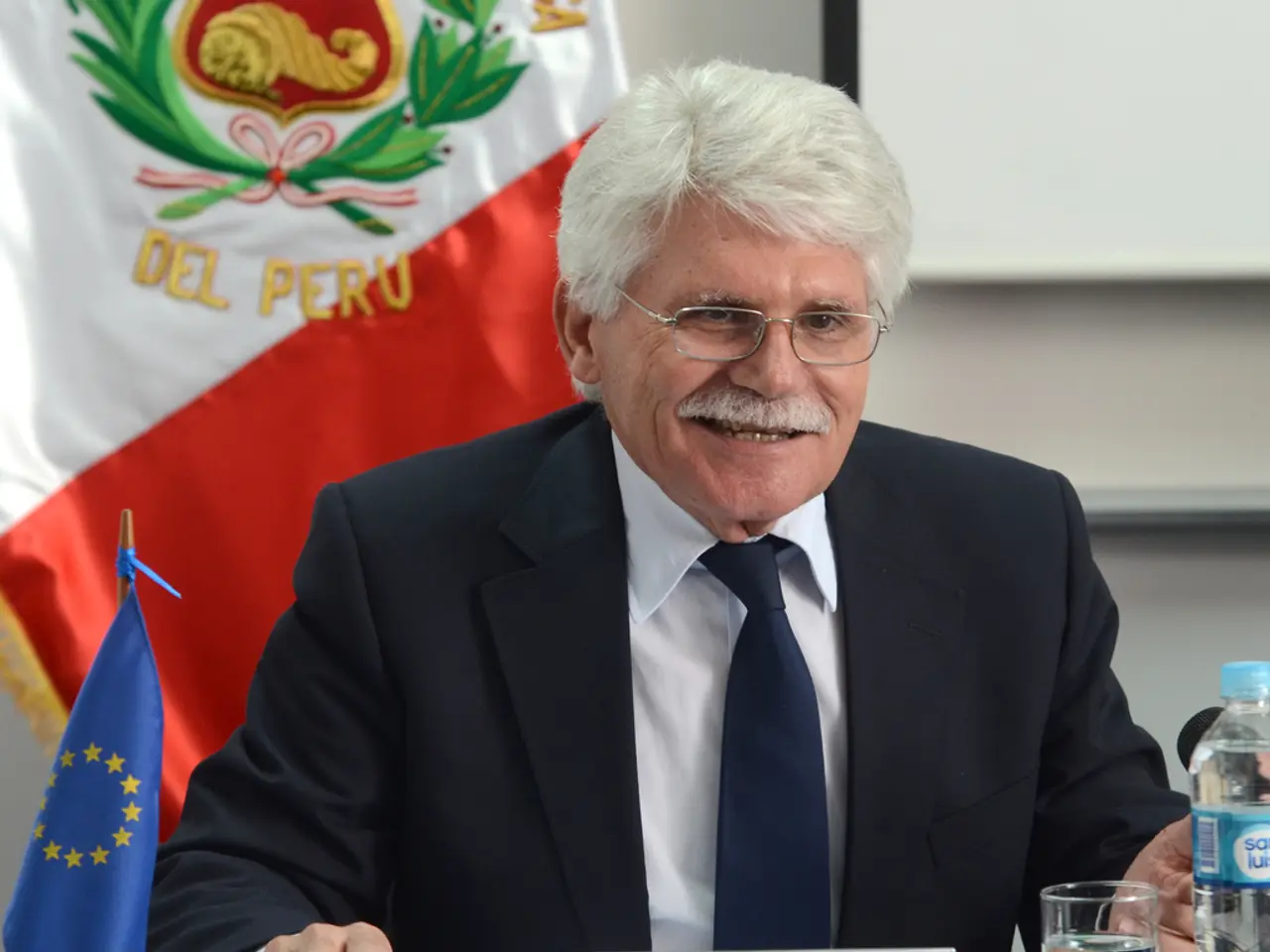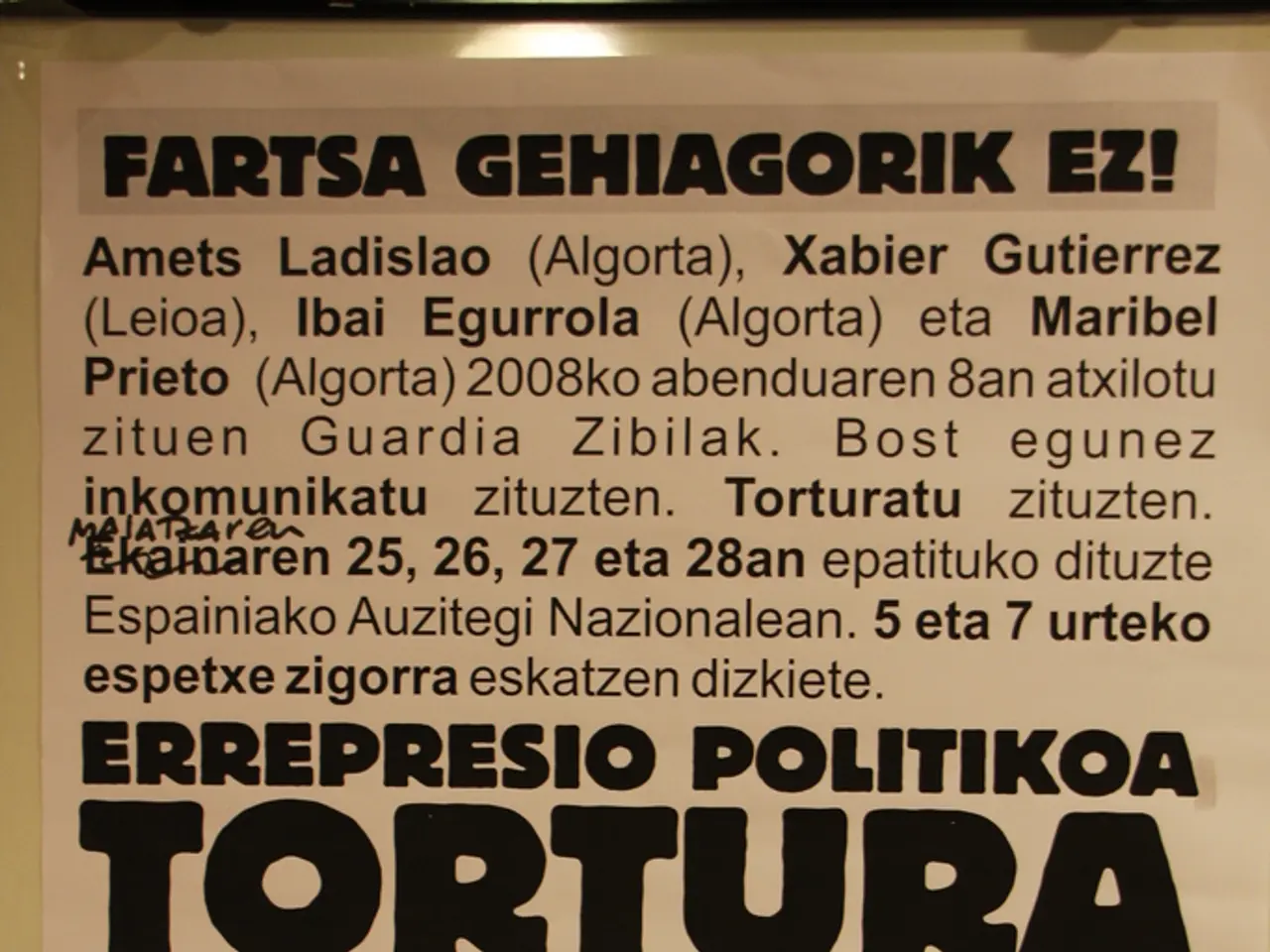Political Squabbles Spotted at Symposium Featuring Former Federal Communications Commission Leaders
In the world of media and telecommunications, the Federal Communications Commission (FCC) is under scrutiny, with Commissioner Anna Gomez voicing her concerns over the agency's current direction under Chairman Brendan Carr. Gomez has been vocal in her opposition to what she perceives as the FCC's attempts to intimidate journalists, punish critical media, and suppress dissent.
At the heart of the controversy is the Delete, Delete, Delete initiative, a campaign that Gomez claims poses a threat to free speech and media independence. She argues that the FCC's actions risk undermining these principles, particularly in the exercise of delegated authority within federal agencies like the FCC.
On the other side, Carr has been a proponent of aggressive measures, including the Delete, Delete, Delete initiative and the expansion of spectrum for 5G services. His plan, dubbed "restoring America's leadership in wireless," aims to free up more spectrum for 5G services, a move that could potentially displace satellite companies using C-band spectrum for radio and television satellite downlinks.
The debate between Gomez and Carr was highlighted at the Multicultural Media, Telecom and Internet Council’s annual Former FCC Chairs’ Symposium, where Carr discussed his initiatives since January, including the Delete, Delete, Delete initiative. The event also saw the attendance of former FCC chairs Reed Hundt and Mignon Clyburn, as well as former commissioners Jonathon Adelstein, Henry Rivera, and Michael O'Rielly.
Gomez, however, has been critical of the FCC's recent decisions, such as the approval of Paramount's $8 billion merger with Skydance, which she believes was done along party lines. She also questions the FCC's stance against DEI programs of broadcasters, arguing that it discriminates against some and is wrong.
In a more general sense, Gomez believes the FCC should make decisions based on law, facts, and technical expertise, not politics. She criticizes the FCC for taking deliberate steps to usurp power granted by Congress, as seen in the agency's approach to its authority to conduct spectrum auctions, which Carr thanked President Trump for restoring.
Gomez further alleges that the FCC is using delegated authority as part of the "weaponization" to ensure actions that could not withstand judicial review never have to face it. This claim, if true, raises concerns about the FCC's independence and its role in preserving First Amendment protections and democracy.
As the debate continues, the future of the FCC under Chairman Carr remains a topic of discussion, with Gomez advocating for protecting free speech and media independence, while Carr pushes for policies aimed at boosting 5G services and America's leadership in wireless technology.
[1] Source 1 [2] Source 2 [3] Source 3 (if available)
- Commissioner Anna Gomez has expressed concerns over the Federal Communications Commission's (FCC) current direction, particularly its perceived attempts to intimidate journalists, punish critical media, and suppress dissent, such as the Delete, Delete, Delete initiative.
- The Delete, Delete, Delete initiative, endorsed by Chairman Brendan Carr, aims to free up more spectrum for 5G services, a move that could potentially displace satellite companies using C-band spectrum for radio and television satellite downlinks.
- Gomez believes the FCC should make decisions based on law, facts, and technical expertise, not politics, and argues that the FCC's approach to its authority to conduct spectrum auctions, as well as its stance against DEI programs of broadcasters, discriminates against some and is wrong.
- Gomez's claims that the FCC is using delegated authority to ensure actions that could not withstand judicial review never have to face it raise concerns about the FCC's independence and its role in preserving First Amendment protections and democracy.







